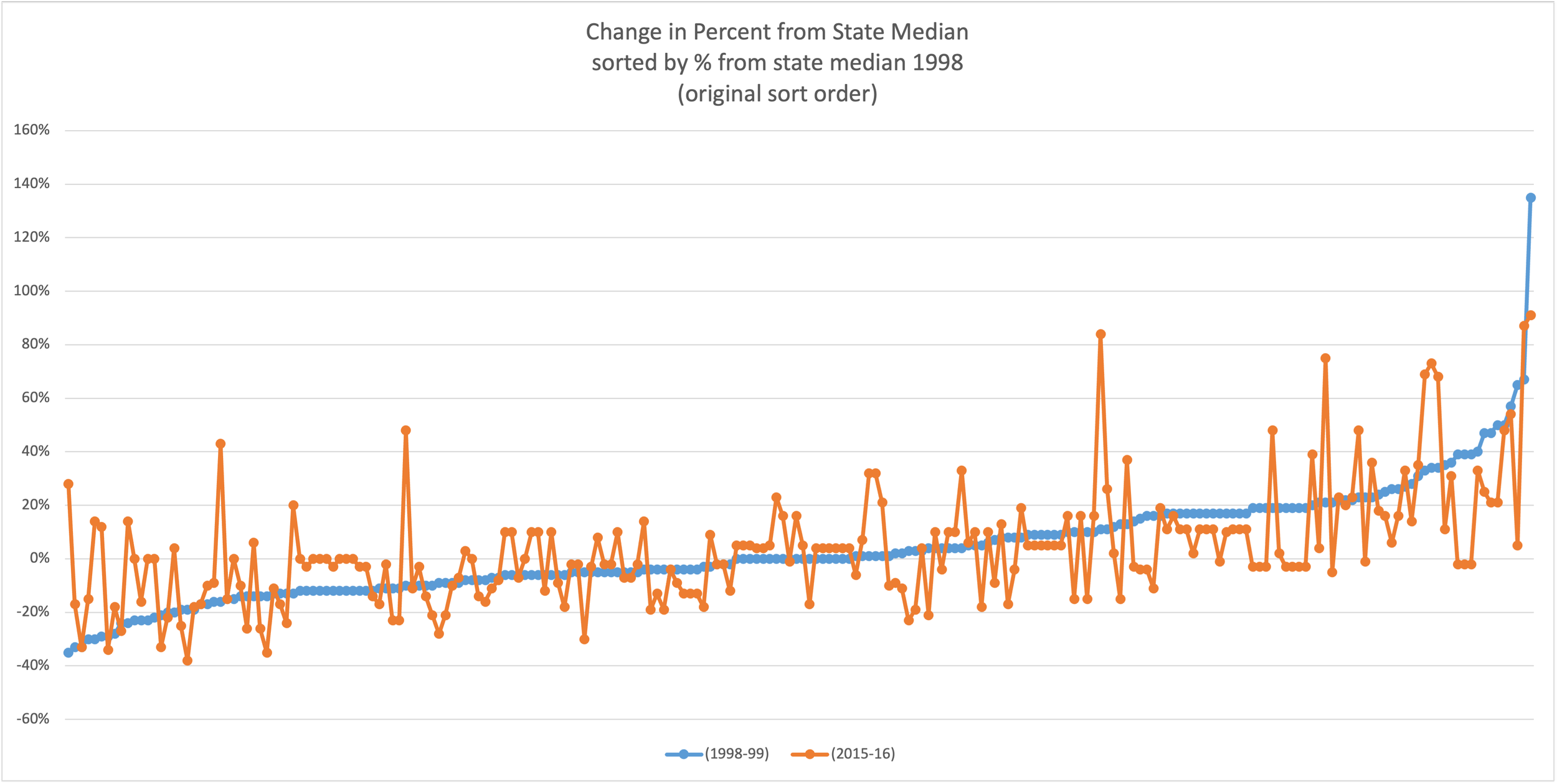The Great Volinsky
Once there was a magician named the Great Volinsky. He bragged that he could fool anyone about anything.
One day in 2017, someone in the audience at one of his performances held up a chart. It showed very clearly that every school district in his state (New Hampshire) was spending more than any school district had been spending nearly two decades earlier (adjusted for inflation), even as student achievement had remained flat.
He asked why this should be the case. Shouldn't more money lead to better education outcomes?
The Great Volinsky said that spending hadn't significantly changed, and that he could demonstrate this. He asked for the data that had been used to make the chart.
First, he calculated the median value for each of the years, 1998 and 2015, separately. He then substituted actual spending for percentage above or below the median, and he sorted the entire chart by the 1998 values. Now the chart looked like this:
Finally, he sorted only the upper line by the 2015 values. Now the chart looked like this*:
* This is the actual chart presented by Andru Volinsky and the School Funding Fairness Project in 2018. More info can be found here.
Of course, now the points that are vertically aligned are from different districts:
So all this chart really showed is that in any given year, some school districts spend more than the median, and some spend less. Which is just the definition of a median.
But the audience was impressed. They ooohed and aaahed and thanked the Great Volinsky for setting their minds at ease. Achievement hadn't increased because spending hadn't changed.
But the Great Volinsky had performed an even more magnificent trick at the New Hampshire state supreme court.
In that case, the judges held up a constitutional article that said (1) legislators should 'cherish' both seminaries and public schools, (2) the people have an inherent and essential right to free and fair competition in the trades and industries, and (3) the state has a duty to protect the people from all monopolies and conspiracies that would hinder or destroy that competition.
No one had any idea what 'cherish' might mean, but it was clear that the state was prohibited from funding, regulating, or operating seminaries, so it seemed clear that it couldn't do any of those things for public schools, either.
But by the time he was done, the Great Volinsky had convinced the court that the state had a duty to fund, regulate, and operate a public-school monopoly that would destroy competition in education.
Now, having seen a little about how he works, how do you suppose he did that?




